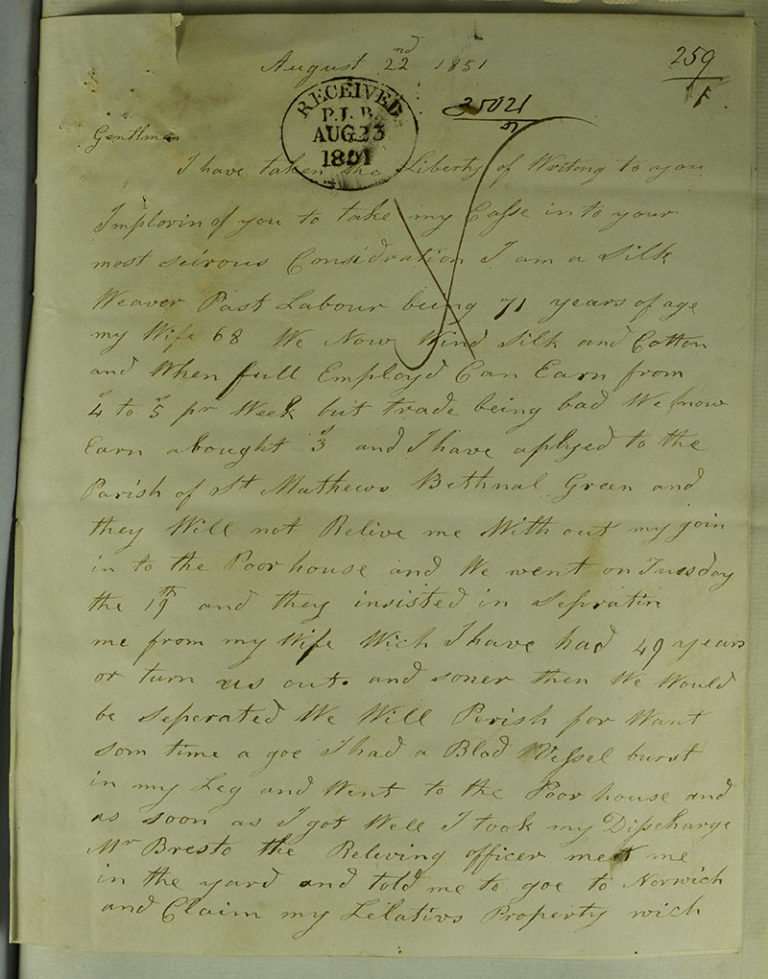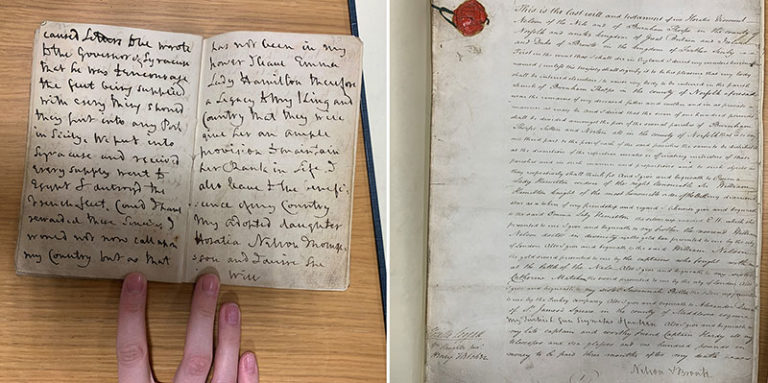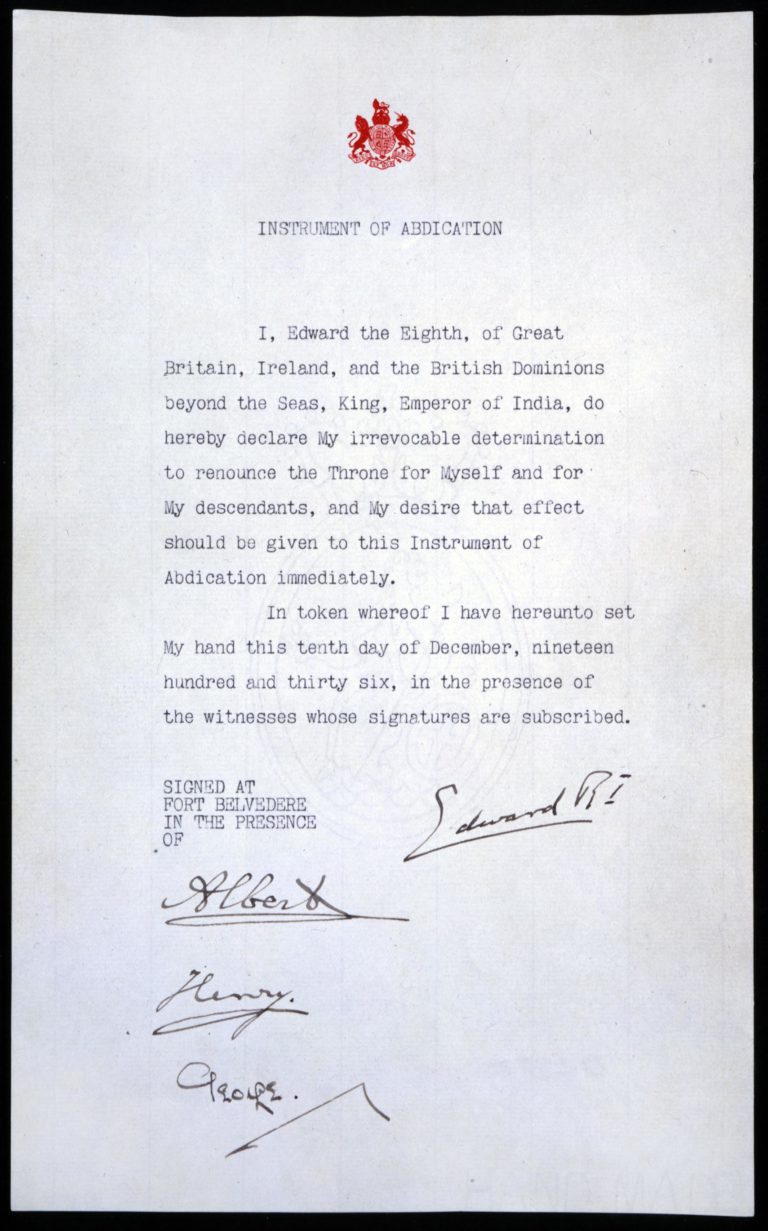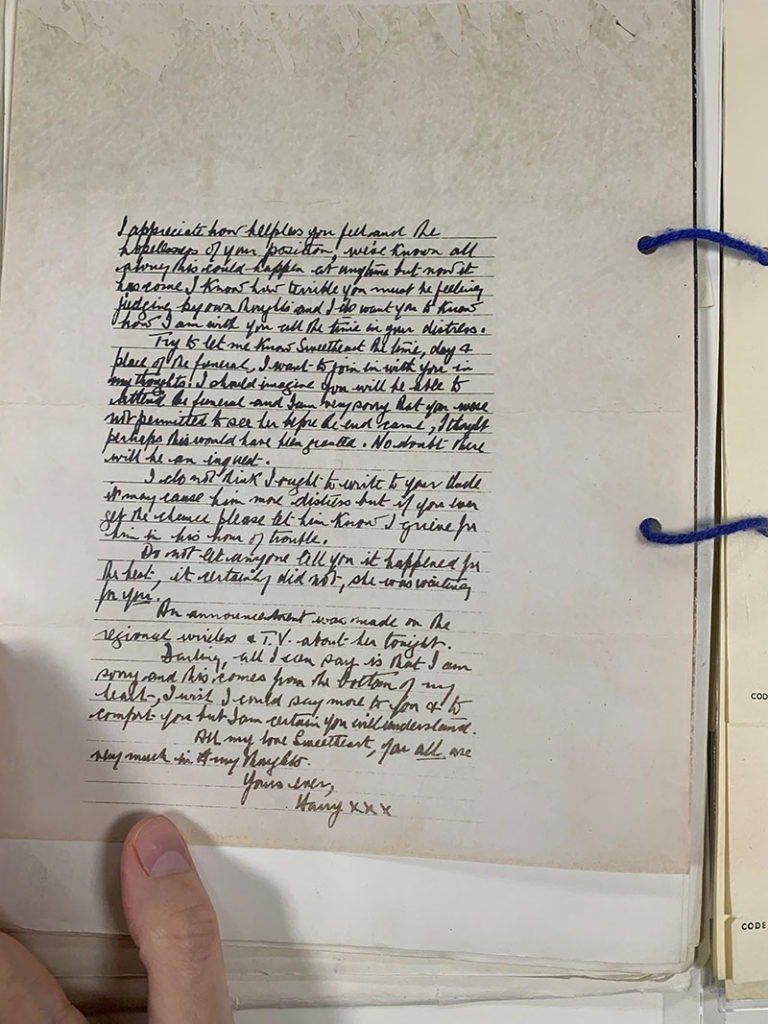What would you sacrifice for love? And who sacrifices more: those who have it all, or those who have nothing to give but their life?
In 1936, Edward VIII abdicated the throne to be with the woman he loved. It’s widely considered to be one of the greatest love stories of the 20th century. Yet, a century earlier, an elderly pauper named Daniel Rush and his wife faced a terrible choice: enter the workhouse and be separated after 49 years of marriage, or try to survive without any income or family for support.
We know about these two sacrifices for love because of letters and documents left behind, which have been preserved at The National Archives. A king and a pauper are certainly not the only people to have sacrificed something for love though – in fact there are many examples to be found in our collection.
It is with the help of archives, historians, and records experts that we are able to uncover the story of the people behind their words. This is what The National Archives does in the third series of our podcast, On the Record at The National Archives, which is all about love. In episode one, we used letters chosen from our exhibition, ‘With Love,’ to look at stories of disappointed and forbidden love. In episode two we looked at how letter writing connects lovers divided by society, geography and even war.
To coincide with the release of episode three, we wanted to reflect on some of the stories in our collection that show the different degrees people will go to in order to protect, maintain and nurture their relationships, whether it be sacrificing familial connections or risking financial stability.
Listen to the podcast here:
Daniel Rush was not financially stable when we pick up the trail of his story in our documents. Daniel was 71 years of age and destitute. At the end of his working life he needed help to get by so asked the local poor law authorities where he lived for some financial and practical relief; he wanted to be able to stay at home with his wife of 49 years. The local authority denied his request and declared that Daniel and his wife needed to go into the workhouse, but when the couple arrived it became clear to them that, once inside, they would be separated.
Daniel didn’t accept the decision, however, and it is at this point that we find a letter from him in our collection – he decided to write to the central government body which oversaw local poor law authorities to see whether they could intervene. For Daniel, sacrificing spending what time he had left in the company of his wife for a roof over his head was a step too far.

While we chose to reflect on Daniel’s letter in detail in the podcast, there are other examples of people in love and sacrificing the chance of financial stability in the archive – even people you might expect not to have any money worries,such as those in relationships with national heroes.
The love story of Admiral Lord Horatio Nelson and his mistress Emma Hamilton is partially preserved at The National Archives. From Nelson’s diary we get a clear sense of his love for Emma:
Drove from dear Merton where I left all which I hold dear in this World to … serve my King and Country
Pocket Diary of Horatio Nelson PROB 1/22/32-33
By ‘all which I hold dear’, Nelson meant Emma and their daughter Horatia.
Although Emma was known to be his mistress, the relationship did not secure her a position in society and she was dependent on him during his lifetime. Nelson was aware of this and in his will he asked the state to ‘give her an ample provision to maintain her Rank in Life’ should he die in battle. As we know, this happened in 1805 at Trafalgar and sadly the lovers were parted. To add to the heartbreak of the story, following Nelson’s lavish state funeral, his wishes were disregarded, and a shunned Emma died destitute in France in 1815.

Emma’s financial stability was ruined after Nelson’s death, with his legitimate son inheriting his vast estate. With Emma not receiving any financial support from the government, her debts mounted. Had she re-married after the death of her husband, Sir William Hamilton, her fate would have been very different; yet despite multiple marriage proposals from wealthy men while Nelson was away at sea, she chose to remain loyal to him. She sacrificed stability for her love of Nelson and the belief that his wishes would be fulfilled after his death.
I have found it impossible to carry the heavy burden of responsibility and to discharge my duties as King…without the help and support of the woman I love
Edward VIII’s abdication speech, broadcast 11 December 1936
On 10 December 1936 Edward VIII, King of Great Britain, Northern Ireland and its dominions abdicated the throne, just months before his coronation. King for only 326 days, Edward sacrificed his position to marry the twice-divorced American, Wallis Simpson.

Perceived to be the perfect heir, Edward was young and handsome and popular with the British public. During his youth, he was a renowned womaniser but just prior to becoming king, he had fallen madly in love with Wallis.
Just six months after his abdication, Wallis and Edward were married. Their wedding was a small, intimate affair, attended by a gathering of 20 people – notably not one of their guests was a member of the British royal family.
Seemingly unimpressive, the Instrument of Abdication sent tremors through Britain. Edward’s actions had not only lost him his crown and threatened a constitutional crisis, but he had also caused lasting damage to any meaningful relationships he had with his family.
At 46 years old, Ethel Gee, a junior office clerk with no former offences, was convicted and imprisoned for passing secrets from the Underwater Weapons Establishment in Dorset, where she worked, to the Soviet Union.
Ethel was a quiet woman who had lived most of her life alone. She had few friends and spent her spare time caring for her elderly mother, aunt and uncle. In 1958 she met Harry Houghton, also an employee at the Underwater Weapons Establishment, where they began an affair.
Harry was already involved in passing documents to Soviet spies but with Ethel’s help, he was able to collect and provide a wider variety of classified material. Inevitably, both were caught and received 15 years in prison for their crimes.
Whilst incarcerated, the lovers often wrote to one another. The National Archives holds copies of their letters as their correspondence was routinely checked, scanned and added to their personal files held by MI5.

In this letter, Harry is consoling Ethel after the death of her mother.
‘Try to let me know Sweetheart the time, day and place of the funeral, I want to join in with you in my thoughts.’
Clearly concerned about her, and in an attempt to raise her spirits, he reassures her:
‘She was a very lucky woman to have had such a devoted daughter who considered her at the expense of her own life.’
Ethel maintained constantly that her only motivation for her crimes was her love for Harry. This devoted kind of love ultimately led to the loss of what kept her from being by her mother’s side before her death, her freedom.
On the Record: Series three available now
All three episodes are now available on the Archives Media Player and on podcast listening apps.
Subscribe: iTunes | Spotify | RadioPublic | Google Podcasts
You can also catch up on series one which focused on espionage, uncovering the true stories of famous spies, and series two which looked at protest – from the medieval Peasants’ Revolt to black power in the courtroom.
‘With Love’ online exhibition
Uncover stories of heartbreak, passion and disappointment through love letters spanning 500 years in our online exhibition.
As far as the case of Ethel Gee goes she was prepared to love her partner more than defend the security of her country and clearly had no love of her country. I do not think we should consider that she was anything but a traitor.